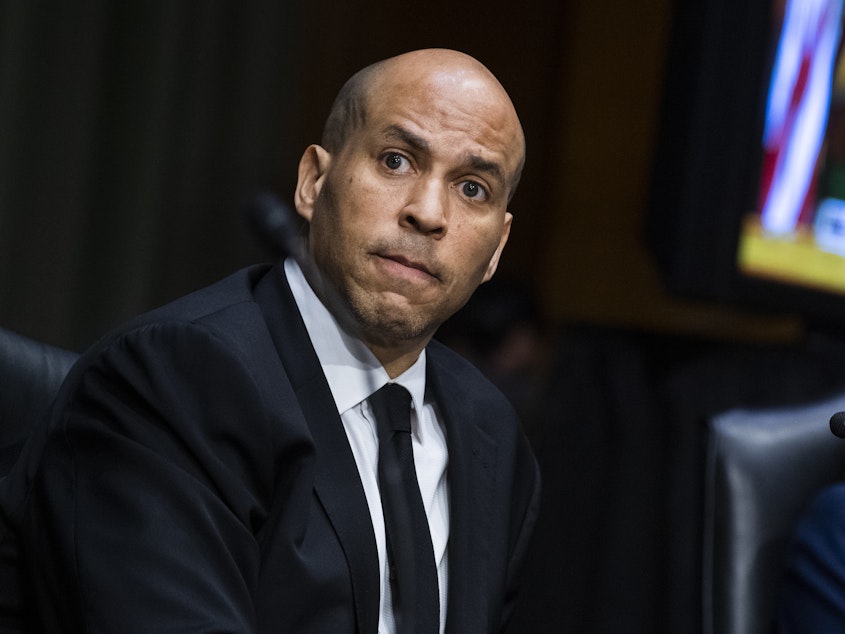Cory Booker Wants To End Qualified Immunity For Police Officers

As protests against police violence continue throughout the country, Democratic lawmakers in the House and Senate are working on sweeping new federal legislation to combat police misconduct.
The bill, called the Justice in Policing Act of 2020, includes an array of measures intended to increase police accountability, data collection and training. Co-sponsored by Sen. Cory Booker, D-N.J., the bill would ban the use of chokeholds, "no knock" warrants and religious and racial profiling.
"These are common sense changes that, frankly, will create a far greater level of accountability for those police officers who violate the law, who violate our rights and who violate our common community standards," Booker told NPR's Sarah McCammon on All Things Considered Sunday.
If enacted, it would also change the way police are held accountable in courts by eliminating qualified immunity, which shields public officials like police officers from being sued for actions that don't violate a clearly established statutory or constitutional right. In 2014, the Supreme Court heard two cases on qualified immunity and handed down two unanimous decisions upholding the legal doctrine.
"Qualified immunity is something that has evolved over time. It's not written into any law," Booker said. "But our highest courts in the land have decided that police officers are immune from civil cases, unless there's been specifically in the past a case of generally the exact circumstances that has led towards a successful action. ... It creates this bar towards civil action against a police officer for violating your civil rights."
Sponsored
Opponents to eliminating qualified immunity argue that police need protection from unnecessary lawsuits. But Booker says he thinks there should still be an option to allow citizens to open civil action against officers.
"I'm a big believer that police officers and towns and communities that employ them should protect them from frivolous lawsuits," Booker said. "But when it's so clear that an officer has violated community standards, department standards and the civil rights of Americans, that they should be open to civil action."
The measure comes just days after House Speaker Nancy Pelosi, D-Calif., asked the Congressional Black Caucus to draft legislation in response to the weeks-long protests that have erupted across the nation following the death of George Floyd.
"It is time for us to address the concerns that were being expressed by the protesters," Pelosi said Tuesday. "This is not a single incident. We know this is a pattern of behavior and we also know the history that brings us to this sad place." [Copyright 2020 NPR]



